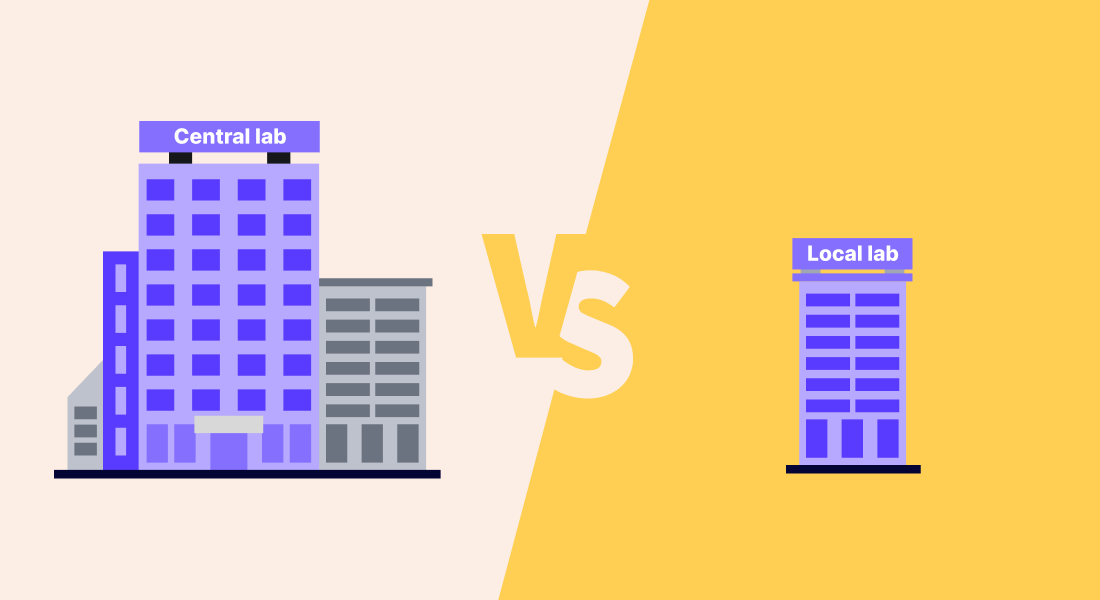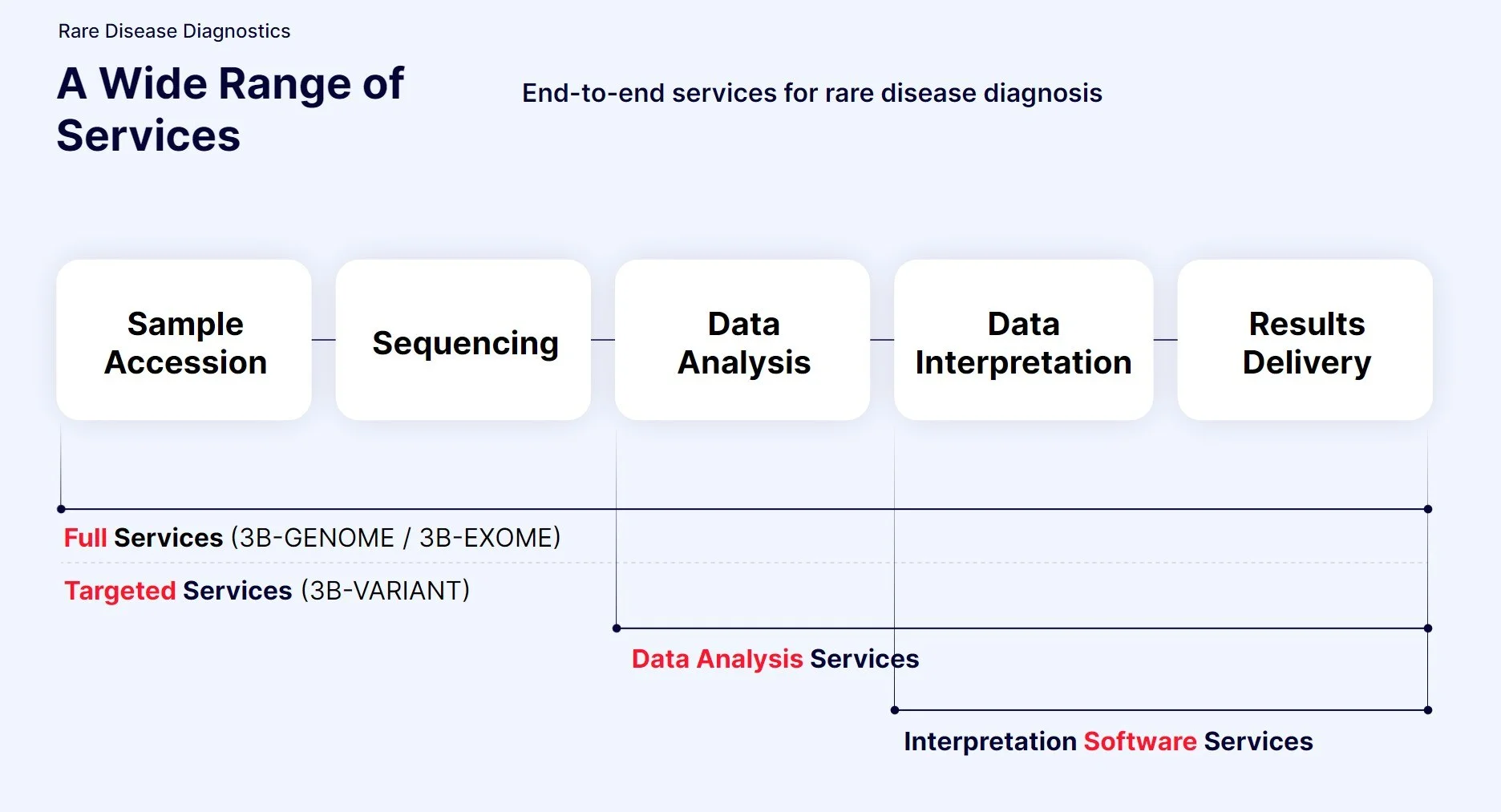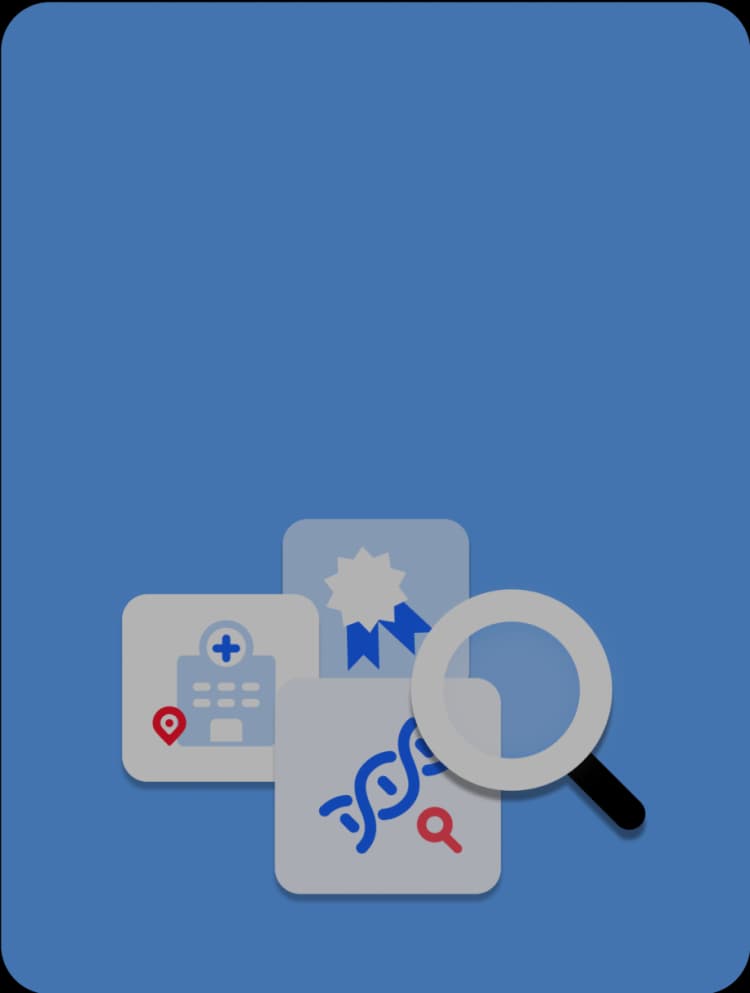Central Lab vs Local Lab in Clinical Trials

In the context of clinical trials, a central lab and a local lab refer to different types of laboratories involved in the testing and analysis of samples collected from trial participants. Here are the key differences between the two:
What is Central Lab
- A central lab is typically a large, specialized laboratory facility that is usually independent of the clinical trial site or sponsor.
- It is responsible for handling a significant portion of the laboratory testing required for the clinical trial.
- Central labs are often equipped with advanced technology and have extensive experience in conducting specific types of tests or assays.
- They typically process and analyze a large number of samples collected from multiple trial sites or locations.
- The central lab receives the samples from the trial sites, performs the testing, and communicates the results back to the trial sites or the sponsor.
- Central labs ensure standardized and consistent testing procedures and quality control measures across multiple trial sites, which is particularly important for multinational or multi center trials.
- They may have established partnerships with multiple clinical trial sponsors and have the infrastructure to handle a high volume of samples efficiently.

What is Local Lab
- A local lab, also known as a site lab or investigator lab, is usually situated within the clinical trial site or the healthcare institution where the trial is being conducted.
- It primarily serves the immediate testing needs of the trial site or investigator and may not have the same level of specialization or capacity as a central lab.
- Local labs handle routine and urgent testing required for patient care and trial management within the trial site.
- They may conduct basic laboratory tests, such as blood counts, routine chemistry, or other standard tests that are commonly performed in clinical practice.
- Local labs are responsible for processing and analyzing the samples collected at the trial site, providing immediate results for patient management, and facilitating the trial workflow.
- While local labs offer convenience and quick turnaround time for certain tests, they may not have the same level of standardization or specialized capabilities as central labs.
- In some cases, local labs may collect samples that require specialized testing and send them to a central lab for further analysis, particularly for complex or specialized assays.
It’s important to note that the specific roles and responsibilities of central labs and local labs may vary depending on the clinical trial, the type of testing required, and the resources available at the trial site.

When you should choose a Central Laboratory ?
A central lab is typically preferred over a local lab in certain situations:
- Standardization and Consistency
Central labs ensure uniform testing procedures, standardized protocols, and consistent quality control measures across multiple clinical trial sites. This is especially important in multinational clinical trials or multi-center trials, where consistent and reliable test results are crucial for comparing data from different locations. Standardized processes minimize variability, which helps maintain the scientific integrity of the study. - Specialized Testing and Advanced Testing
Clinical trials often require specialized laboratory testing that may not be readily available at local labs. Central labs are equipped with advanced technology and have expertise in specialized assays, such as genomic sequencing, biomarker testing, or pharmacokinetic analyses. These laboratories are ideal for complex tests, offering access to high-throughput instruments and personnel experienced in specific methodologies, which are integral to many modern clinical research studies. - Scalability for Large-Scale Trials
Central labs have the infrastructure to handle large volumes of clinical trial samples efficiently, which is beneficial for large-scale clinical trials involving multiple sites. Their centralized structure allows for streamlined sample management, ensuring samples are processed and analyzed quickly, reducing turnaround times and enabling faster decision-making, which is crucial for rapid clinical trial progression. - Stringent Quality Control and Regulatory Compliance
Central labs implement rigorous quality control procedures to ensure the precision and accuracy of test results. They undergo regular external accreditation and regulatory compliance assessments, adhering to standards such as Good Laboratory Practice (GLP) and Clinical Laboratory Improvement Amendments (CLIA). These labs are often better equipped to handle the strict requirements of regulatory submissions, providing high-quality, compliant testing for FDA submissions and other regulatory bodies. - Data Management and Integration
Central labs offer comprehensive data management systems, often employing sophisticated Laboratory Information Management Systems (LIMS). This allows for efficient data collection, integration, and reporting, ensuring that trial data from multiple sites is securely stored, easily accessed, and accurately analyzed. Centralized data management contributes to more transparent data handling throughout the trial lifecycle, which is a key benefit in clinical data integrity. - Cost Efficiency and Logistical Management
While central labs may appear more costly upfront, they provide long-term cost savings by consolidating resources, reducing redundant testing, and minimizing errors. Additionally, central labs often manage end-to-end logistics, including sample transportation, collection, and storage, which simplifies coordination across sites and ensures samples remain viable. This logistical efficiency further contributes to the overall success of the trial by reducing delays in testing and reporting.
Of course, even a central lab, there can be differences in all of the testing services that each offers. 3billion is a company specializing in genetic diagnostics and clinical trial services, particularly in the field of rare genetic diseases. As a central lab, 3billion provides centralized testing services for clinical trials conducted at multiple sites. We typically handle the processing, analysis, and interpretation of samples collected from different trial sites, ensuring standardized testing procedures, quality control, and centralized data management.
3billion can provide clear benefits and outcomes in the genetic testing portion of certain clinical trials. Get a quote first and compare with other lab providers to decide.
3billion provides optimised WES/WGS genetic testing services for researchers. Many researchers around the world use our proven technology to conduct their research. Get an affordable research quote right now. – You can decide later.
🔬 Need a Genetic Testing Partner for Your Research?
Get a customized quote for WES/WGS services tailored to your clinical trial or research study.
3billion supports researchers worldwide with standardized, cost-effective genetic testing.

Curious About the Cost?
Compare your options — get a research quote for high-quality WES/WGS testing from 3billion.
Get exclusive rare disease updates
from 3billion.

Sree Ramya Gunukula
Marketing Leader with experience in the pharma and healthcare sectors, specializing in digital health, genetic testing, and rare disease diagnostics.







